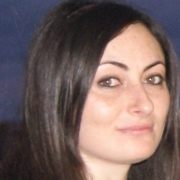Good news today! Another company has launched a potential drug for myotonic dystrophy and by extension this may also treat the childhood forms of myotonic dystrophy. The childhood forms of myotonic dystrophy are highly associated with autism spectrum disorder, so it is hopeful that this new drug will have some effects on this as well as the cognitive effects in the adult forms of the disease. For the general autism population reversing the effect in the childhood forms of myotonic dystrophy. May help narrow the mechanism of action and suggest certain treatments in the future. The childhood form of myotonic dystrophy is one of the few single gene causes of autism. Because the drug will work through an RNA mechanism, it is unlikely this drug will have a direct effect on the general autism population.
Tag Archives: drug
Arbaclofen – Will it help kids/adults with Myotonic Dystrophy?
While poking around looking for solutions and help in the autism area I found a lot of help and support. And I found a new drug that is being tested now in Phase II studies. Its being tested for a sister disease that has a lot in common with Myotonic Dystrophy. Fragile X is a triple repeat disease and has some symptoms similar to myotonic dystrophy kids. Fragile X syndrome (FXS) is a genetic condition that causes intellectual disability, behavioral and learning challenges and various physical characteristics. Though FXS occurs in both genders, males are more frequently affected than females, and generally with greater severity.
Both of these diseases are single gene cause of mental retardation and autism. Perhaps the drug that treats one may be applicable to the other.
The good news is that there is a drug in late stage development that might help with autism in kids with myotonic dystrophy. This drug is called arbacofen and has been successfully tested in not only in kids with fragile X but also in other kids with autism as well. The outcome is promising and the studies are continuing. Its fairly advanced with studies in the Phase IIb, which means they are getting close to commercialization.
Biogen / Isis Partnership Readies Autism Drug For Human Clinical Trials

![]() A not well know secondary effect of a drug that Biogen and Isis are jointly developing may reverse some or all the effects of a specific single gene type of autism. This drug will be entering Human Trials in 2014 if all goes well. In August Biogen and Isis announced a collaboration on a drug that looks extremely promising to treat a form of muscular dystrophy, Myotonic Dystrophy. But it may also reverse the symptoms of autism that occurs in some not well known forms of myotonic dystrophy in children. This could be a sleeper drug that may help with this larger and more pervasive societal problem.
A not well know secondary effect of a drug that Biogen and Isis are jointly developing may reverse some or all the effects of a specific single gene type of autism. This drug will be entering Human Trials in 2014 if all goes well. In August Biogen and Isis announced a collaboration on a drug that looks extremely promising to treat a form of muscular dystrophy, Myotonic Dystrophy. But it may also reverse the symptoms of autism that occurs in some not well known forms of myotonic dystrophy in children. This could be a sleeper drug that may help with this larger and more pervasive societal problem.
New Approach Cures some RNA toxicity in Fly’s and Mice with Myotonic Dystrophy
Another strategy for a cure of for myotonic dystrophy treatment
Researchers at the University of Valencia in Spain led by Amparo Garcia-Lopez recently identified a new way to block the genetic change that causes myotonic dystrophy type 1. They used a fruit fly model to screen for potential drugs and then tested the most promising one in mice. The muscles of the treated mice appeared healthier under the microscope. This new research is encouraging and if replicated in humans it would be expected to be an effective treatment.
Prosensa recieves 5 million Euros for Myotonic Dystrophy Research
The USA is not the only location where drug development for myotonic Dystrophy is taking place. Here is a one year old report (October 2011) on the research in the Netherlands for Myotonic Dystrophy treatment. Prosena also receive an Emerging Star award this year for the most innovative biotech company in Europe. They also announced a 23 million euro financing round in January. Prosensa has about 4-5 potential drugs for Duchene Muscular Dystrophy in development and we are very happy that they are looking at Myotonic Dystrophy as a therapy as well.
Prosensa Awarded up to €5m Innovation Credit from Dutch Government for research in Myotonic Dystrophy
October 25, 2011
For immediate release
Leiden, The Netherlands, October 25, 2011 – Prosensa, the Dutch company focusing on RNA modulating therapeutics for rare diseases with unmet medical needs, announced today that it has received an innovation credit of up to €5m from AgentschapNL, a subsidiary of the Dutch Ministry of Economic Affairs, Agriculture and Innovation, to support further development of a series of preclinical compounds for the treatment of Myotonic Dystrophy type 1 (DM1).
According to the terms of the agreement, Prosensa will receive €940,000 to support the initial stage of the project, with the potential to receive additional funding of up to €5m after successful completion of specific milestones and an initial review in 2012.
The genetic mutation underlying DM1 is characterized by expansion of so-called triplet repeats in the DMPK gene leading to transcripts with toxic effects. Prosensa applies its RNA modulation platform to reduce the number of these expanded repeat, toxic transcripts. One compound, PRO135, reversed the transcript toxic effects after in vivo intramuscular administration in preclinical DM1 models. Prosensa works in close collaboration with the department of Cell Biology, Nijmegen Centre for Molecular Life Sciences, Radboud University Nijmegen Medical Centre, on this project, one of the leading centres in DM1 research in the world.
Judith van Deutekom, Vice President of Discovery at Prosensa commented: “We are very pleased with this grant by the Dutch government, which allows us to accelerate our research in this important therapeutic area and helps us grow into a specialist rare disease company. The innovation credit from the Dutch government is intended to stimulate development of technologically innovative products. In addition to Duchenne muscular dystrophy, we are also working on a potential therapy for patients affected by Myotonic Dystrophy, yet another rare disease for which no treatment currently exists.”


